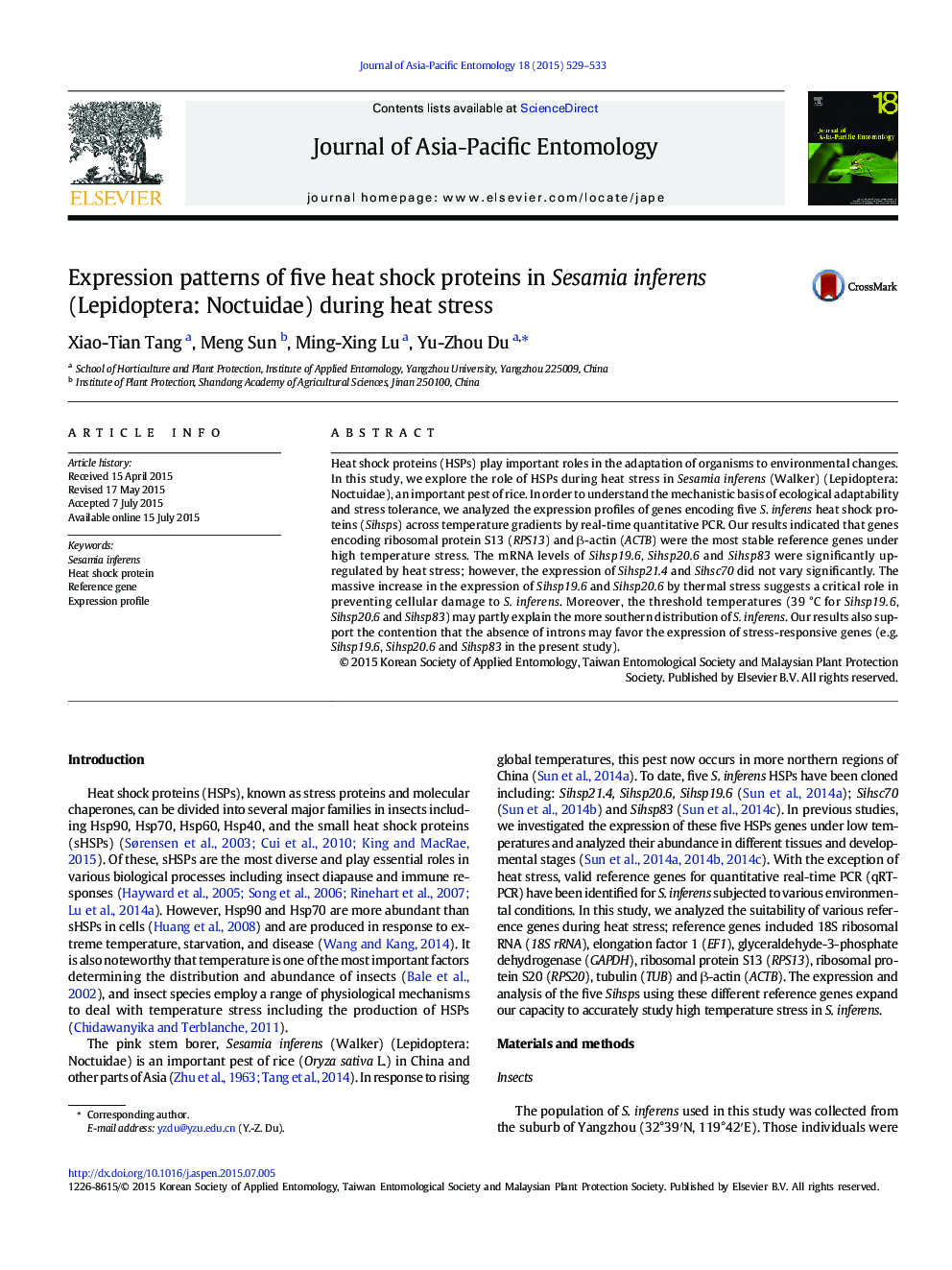| Article ID | Journal | Published Year | Pages | File Type |
|---|---|---|---|---|
| 4524666 | Journal of Asia-Pacific Entomology | 2015 | 5 Pages |
•Reference genes RPS13 and ACTB were the most stable reference genes under high temperature stress for Sesamia inferens.•Genes encoding the five HSPs showed divergent expression patterns in fifth-instar larvae.•Sihsp19.6, Sihsp20.6 and Sihsp83 impart tolerance to high temperatures in S. inferens.
Heat shock proteins (HSPs) play important roles in the adaptation of organisms to environmental changes. In this study, we explore the role of HSPs during heat stress in Sesamia inferens (Walker) (Lepidoptera: Noctuidae), an important pest of rice. In order to understand the mechanistic basis of ecological adaptability and stress tolerance, we analyzed the expression profiles of genes encoding five S. inferens heat shock proteins (Sihsps) across temperature gradients by real-time quantitative PCR. Our results indicated that genes encoding ribosomal protein S13 (RPS13) and β-actin (ACTB) were the most stable reference genes under high temperature stress. The mRNA levels of Sihsp19.6, Sihsp20.6 and Sihsp83 were significantly up-regulated by heat stress; however, the expression of Sihsp21.4 and Sihsc70 did not vary significantly. The massive increase in the expression of Sihsp19.6 and Sihsp20.6 by thermal stress suggests a critical role in preventing cellular damage to S. inferens. Moreover, the threshold temperatures (39 °C for Sihsp19.6, Sihsp20.6 and Sihsp83) may partly explain the more southern distribution of S. inferens. Our results also support the contention that the absence of introns may favor the expression of stress-responsive genes (e.g. Sihsp19.6, Sihsp20.6 and Sihsp83 in the present study).
